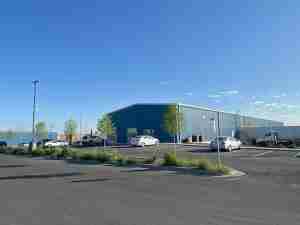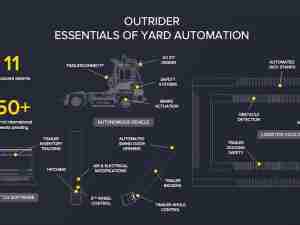Fully Charged: What Truckers Can Teach Coders
By: | Jun 22 2017 at 07:00 AM | Intermodal
Hey all, it’s Max. The most buzzed about topic right now in Silicon Valley—maybe even more popular than that parlor game around who will be the next CEO of Uber—is the risks posed by artificial intelligence.
Some, including Elon Musk, worry that robots could become so smart that they will rise up and enslave us. Others have raised the possibility of robots taking over most of our jobs, which would turn an already-worrying gap between the rich and poor into something insurmountable: a permanent underclass.
These warnings aren’t especially helpful if you’re trying to understand how automation will change the way we live and work in the nearer term. More likely than a robot revolt or a world without work is the possibility that workers who perform certain repetitive tasks (driving, doing taxes, reading x-rays, and, God help me, writing newsletters) might see their wages drop or be forced to find a new career.
That’s why I’ve spent the past couple of months looking into trucking, one of the industries most likely to be transformed by automation, and also one of the most important industries to American workers. The result is this week’s Decrypted podcast, as well as a feature, co-written with Josh Eidelson, in Bloomberg Businessweek .
Trucking is attractive to Silicon Valley’s machine learning specialists because, for reasons that I outline in my story, the industry will be somewhat easier to automate than passenger cars. Also, the trucking industry can’t seem to find enough workers to fill its jobs. In other words, you can invest in a driverless trucking startup without worrying about putting people out of work. Win-win!
The truth is more complicated. Even though the trucking industry has a significant labor shortage, there are still millions of people who depend on jobs driving trucks. And because trucking is a field that is open to people without a college education, these workers could struggle to adapt to a driverless future in a way that, say, out-of-work accountants will not. It’s also worth noting that even “driverless trucking” companies will still probably employ quite of few truckers.
As part of my reporting, I rode along in a semi-autonomous truck developed by Starsky Robotics, a San Francisco startup. Starsky plans to relocate drivers from the cabs of trucks and put them into call centers. The idea is that the job of a truck driver will be a bit like the job of a military drone pilot today.
Starksy’s CEO Stefan Seltz-Axmacher believes that the jobs his company creates will be better than the jobs most truck drivers have today. Drivers generally spend weeks away from home at a time, and they work long hours. It’s an optimistic thought—and an exciting one.
In the meantime, Starsky’s drivers must spend a lot of time working alongside AI engineers. Both jobs are needed to train the company’s algorithms to usher in this brave new world. It’s possible that driverless trucks portend the dystopian future that some in Silicon Valley imagine, but I think they might also help bridge what is already a gaping class divide.
And here’s what you need to know in global technology news
Facebook COO Sheryl Sandberg is reportedly a favorite of Uber’s board of directors to replace ousted CEO Travis Kalanick. There’s one problem: Sandberg isn’t interested. In a weird convergence, the former Disney COO Thomas Staggs is another top candidate to run Uber. Like Sandberg, Staggs, has been long-rumored as a possible successor to Disney CEO Bob Iger.
Here’s why the gap in pay between men and women has continued to persist, even at companies that are trying to do something about it.
Amazon’s march towards owning literally everything continues. The company struck a deal with Nike to allow the brand to sell shoes directly on the site. And just like that, Foot Locker and Dick’s lost 10 percent of their market value.
And if you’re an Apple design nerd like me, you’ll want to watch this interview with Scott Forstall at the Computer History Museum about the history of the iPhone. Forstall hasn’t spoken publicly since leaving the company amid the Apple Maps debacle.







